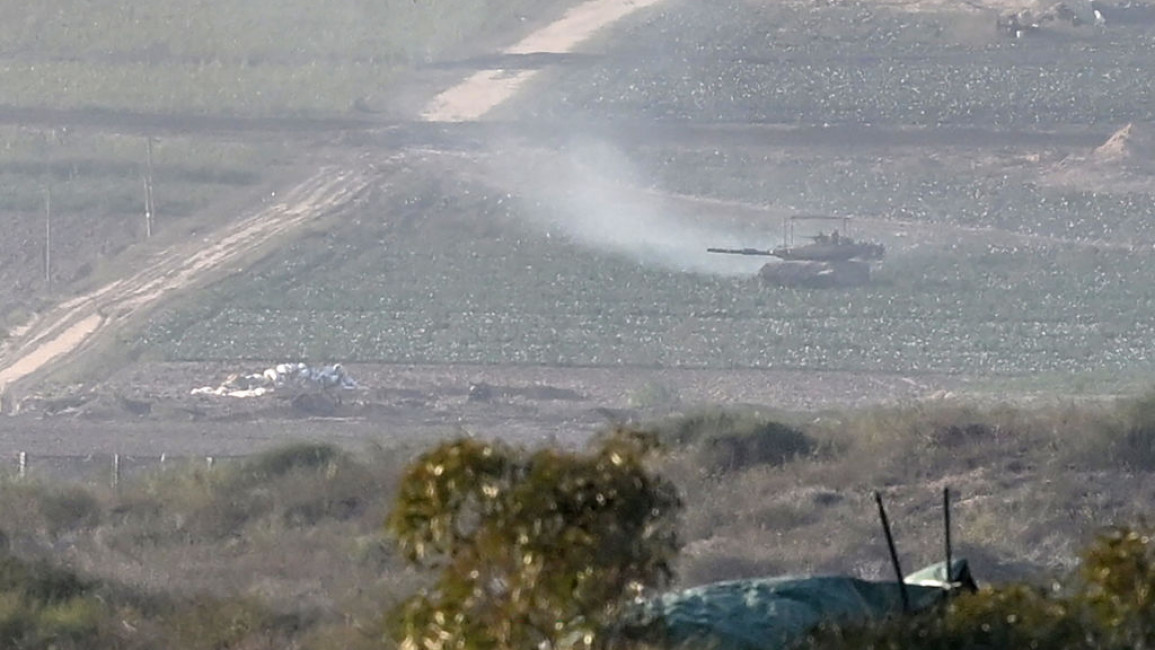Did the US give Israel the green light to resume its war?
Israel resumed its brutal war on Gaza on Friday following the end of a week-long ceasefire which saw the exchange of Israeli captives held by Hamas and some Palestinian women and child prisoners held by Israel.
Since restarting its relentless bombarding of the strip, over 178 Palestinians have been killed and more than 589 wounded by Israeli airstrikes. Hamas has also resumed its rocket barrages into Israel.
Before the expiration of the ceasefire on Thursday, US Secretary of State Anthony Blinken made his fourth visit to Israel since the start of the Gaza war, meeting its war cabinet.
According to Axios, the meeting saw a "frank exchange of views" between Blinken and the war cabinet over the possibility of Israeli ground operations in southern Gaza.
It came following his request to be briefed on the plans, with Israeli general Herzi Halevi telling Blinken that Israeli military operations were likely to take "more than a few additional weeks".
Blinken reportedly warned the Israeli war cabinet of any further Israeli action planned for southern Gaza, urging Israel to limit civilian casualties.
He also reportedly added that international pressure on Israel and the US to stop the war would continue building as long as the war continued.
However, although Axios reported that there was friction between the US and Israel over its military plans and conduct of the war, in a subsequent press conference following the meeting Blinken reaffirmed US support for Israeli military action.
"As we've said from the outset, Israel has the right to do everything it can to ensure that the slaughter Hamas carried out on October 6th can never be repeated. Hamas cannot remain in control of Gaza. It cannot retain the capacity to repeat that carnage."
US National Security Council spokesperson John Kirby reaffirmed that support, telling journalists on Thursday that Israel will "continue to find support from the United States" in its military operation, although he added that support for an operation in the south was contingent on protecting civilians.
The US has consistently offered diplomatic support to Israel's military operations and has gone as far as sending arms to Israel, including munitions for artillery and missiles for Israel's Iron Dome.
Israeli plans to drive south
The contingent support for the expansion of military operations in southern Gaza focused on the city of Khan Younis, where Israeli flyers were airdropped with messages calling on Palestinians to leave their homes.
The operation in the south would see the Israeli army enter an area with over two million people, following the mass displacement of one million people from northern Gaza, according to Doctors Without Borders.
Sources with knowledge of Israel's military plans in Gaza told the Financial Times that Israel was prepared for a war which could take over a year to complete.
This war plan would see Israel reportedly eliminate Hamas leaders Yahya Sinwar, Mohammed Deif and Marwan Issa, as well as destroy the group's 24 battalions, its underground network and its ability to govern the enclave.
One source told the Financial Times that "this will be a very long war… we're currently not near halfway to achieving our objectives".
According to the sources, high-intensity operations were likely to go into early 2024 alongside a push into southern Gaza, with the US urging Israel to have "a smaller military footprint" in the south and greater support for civilians who are unable to be evacuated to other locations in Gaza.
Close to 15,000 people have been killed since the start of Israel's military campaign in Gaza according to authorities in Gaza, over half of whom are women and children, with tens of thousands more injured.


![President Pezeshkian has denounced Israel's attacks on Lebanon [Getty]](/sites/default/files/styles/image_684x385/public/2173482924.jpeg?h=a5f2f23a&itok=q3evVtko)



 Follow the Middle East's top stories in English at The New Arab on Google News
Follow the Middle East's top stories in English at The New Arab on Google News


